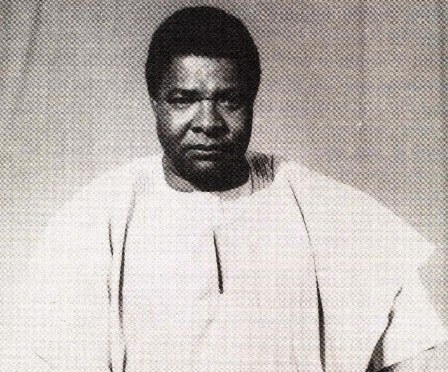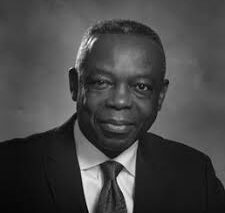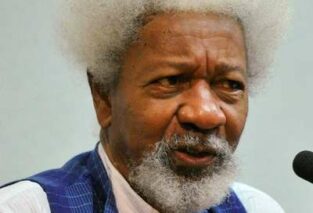
Sierra Leonean-born Professor Michael Abioseh Porter of Drexel University in Philadelphia, USA, knew Professor Bernard Nsokika Fonlon well for having met and interacted with him in Cameroon and outside Cameroon. To him, Dr. Bernard Nsokika Fonlon was an outstanding intellectual, who dominated the Cameroonian intellectual and political landscape for several decades. Even though he had political and material power within easy reach, Fonlon emerged from it totally unstained by waves of corruption scandals that have been the hallmark of life in his country, Cameroon, that unfortunately earned for itself, on two successive occasions, the unenviable title of the “most corrupt country in the world.” That came several decades after Fonlon, who passed on in 1986.
Professor Porter, during your research work in Cameroon, you met a number of intellectuals with whom you exchanged notes. Who were some of these people?
Before traveling to your country in 1979, I had, of course, read many Anglophone Cameroonian writers, some of whom had been making quite a name for themselves in the literary world. At the University of Yaoundé, in particular, I had the good fortune to run into some of them. I easily think of Bole Butake, who stands out in my mind because he was particularly receptive when we approached him, in addition to being a truly wonderful dramatist, with several plays under his belt. We also met Gemanus Nchanji, Tala Kashim, Kitts Mbebo, among others. These names stand out in my mind because of the way they were generous with their time and the ease with which they shared their knowledge, willingly and extensively with us. It was truly wonderful.
However, one person who stood out head and shoulders above the crowd was none other than Dr. Bernard Nsokika Fonlon, of blessed memory. I found him remarkable in two specific ways: here was someone who was the embodiment of authority, who had political power at his reach, but who symbolized what it meant to be an educated person: simple, easy-going, unassuming individual, a truly knowledgeable human being, funny beyond compare. He would really crack you up with some jokes and witty sayings. In short, he was a truly great mind and a wonderful human being.
He invited us, Stephen Arnold, my professor at the Department of Comparative Literature at the University of Alberta in Edmonton, Canada, and me, to his home and we spent several hours interviewing him, discussing literature, the arts, travels, you name it. He was into it all, and it was a true delight to talk with him. In true Cameroonian tradition, he fed us until we could have no more. But all along, we felt we were truly in the presence of a witty man, a truly intellectual giant, who didn’t bathe in encomiums. His knowledge of the Cameroonian literary scene in relation to the rest of the world was unrivalled and we drew enormous inspiration from that contact. When I learnt of his death, I wept bitterly because a great mind had been laid to rest forever. He represented all that was good in the human mind. He was sharp and gave us quite some cogent, non-defensible reasons for what was said to be the paucity of Cameroon Anglophone literature.
There was indeed quite some talk at the time of some form of vacuum, or paucity, as you call it, in Cameroonian creative writing. What were some of the reasons Fonlon, and the others, gave for that?
There were various reasons, notably the absence of a printing press, the absence of a standard or standardized alphabet, and the absence of an outlet for such literature when it saw the light of day. Then the socio-cultural and political reasons also came into play. For example, Anglophone Cameroon had long been considered the hotbed of opposition to the regime in place and, as we all know, whenever a group in Africa is stigmatized by a ruling clique, such a group inevitably becomes the target of oppression. Cameroonian politicians, like politicians all over Africa, aren’t as stupid as we would sometimes wish they were; they know that well-educated people can become a thorn in their flesh. They know that well rounded up, educationally-inspired people inevitably agitate for change in all its forms. The intellectuals are, to borrow the English poet Shelley’s expressions, “the unacknowledged legislators of the world.” Of course, they don’t have any laws to legislate but if they wield their pens well enough, they can effect much needed change. So, the Cameroonian government’s actions were deliberately taken to discourage any creative writing in the country.
There was also another reason Dr. Fonlon raised, which is what Professor Steve Arnold calls “Anglophone Cameroon as an orphan of the Commonwealth.” In other words, Anglophone Cameroon did not have the kind of link with Britain and the other members of the Commonwealth, which the other former British colonies had. By the time the likes of Chinua Achebe in Nigeria and Ngugi Wa Thingo’o in Kenya, and a host of others, started to write, their contacts with Britain and her former colonies had been so intense that it inspired much of their writing. La Francophonie, for example, had no place in its structure for Anglophone Cameroon.
A further reason relates to the teaching of literature in schools, which was rather too pedantic. Literature, in Anglophone Cameroon (as in Sierra Leone, Nigeria, or Ghana) was seen as a subject that was only fit for examination purposes. So the infrastructure that should have encouraged the young to write literary works was never there. There had been an early crop of very good writers from Francophone Cameroon – the likes of Oyono and Mongo Beti – which English-speaking Cameroon did not produce. These are people who had been schooled in some of the best schools France had to offer, and they had a well-oiled literary machinery in France and in French colonies to welcome and appreciate their writing. The same could not be said of Anglophone writers and the Commonwealth; hence, Professor Arnold’s saying that Anglophone Cameroon was the orphan of the Commonwealth.
Interview conducted by Martin Jumbam, New Jersey, 2010


